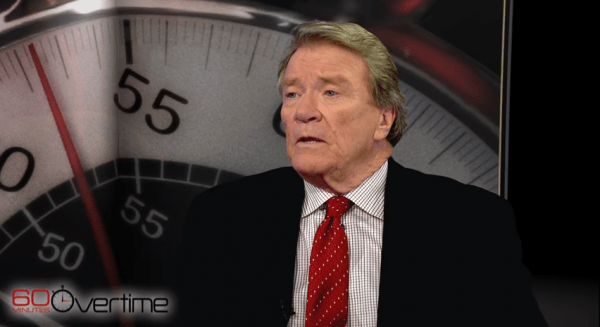
Reaction to the “60 Minutes” segment Sunday evening about concealed carry reciprocity has been swift, and largely negative, as the more than 260 comments posted at the CBS website attest.
In an online follow-up segment, Kroft seemingly suggested to Congressman Richard Hudson, sponsor of the Reciprocity legislation, that he did not see his colleagues at 60 Minutes being trustworthy with guns or temperament.
“Look, I work at 60 Minutes in New York,” Kroft told Hudson candidly, “and I know that if you armed everybody on the floor, and allowed them to carry a concealed weapon it would only be a couple of months before somebody was shot…That’s New York City.” How would a CBS reporter react to such an observation if it had been made by Donald Trump?
The correspondent subsequently danced around answering whether he “grew up with guns.” Instead, he recalled, “I certainly went hunting with my father and grandfather when I was a boy.”
Today’s media-savvy gun activists would say that’s a non-answer response. It does not say whether Kroft is familiar with firearms.
The 20-minute segment featured opponents and proponents of the reciprocity legislation. And there was one stunning point that may have been missed by viewers. When Kroft alluded to the Second Amendment by observing, “The central tenet of Concealed Carry Reciprocity is that the Second Amendment gives people the right to carry guns anywhere they want but that idea is more aspiration than factual.”
Who did he ask to confirm or deny whether there is such a right? Robyn Thomas, the executive director of the Giffords Law Center to Prevent Gun Violence.
“Absolutely not,” Thomas predictably responded. “In fact, the Supreme Court has ruled on the Second Amendment in 2008. And what the Supreme Court said is that you have a right to have a handgun in your home for self-defense. And it absolutely does not include a right to carry a loaded, concealed weapon in public. And right up until the Supreme Court says it is your right, that is a fallacy that they’re pushing, in the hopes that it will become the truth. But it simply isn’t the truth as of right now.”
But does the Heller ruling really say that? The entire ruling and dissents may be read here.
One might reasonably question why Kroft asked a representative from a gun control group to define what the Second Amendment does and does not protect.
Both Hudson and Tim Schmidt, founder and CEO of the United States Concealed Carry Association (USCCA) reminded Kroft and his viewing audience that firearms possession is a right protected by the Constitution. Where the anti-gunners who participated in the segment are concerned, their interest seemed to have been in narrowing the exercise of that right.
If the “60 Minutes” segment did anything, it served as a reminder that the debate over Second Amendment rights is no closer to being resolved than it was 50 years ago, when the Gun Control Act of 1968 was passed following the assassinations of the Rev. Martin Luther King and Sen. Robert F. Kennedy.
Congressional consideration of national concealed carry reciprocity may only serve to pour gas on that fire.